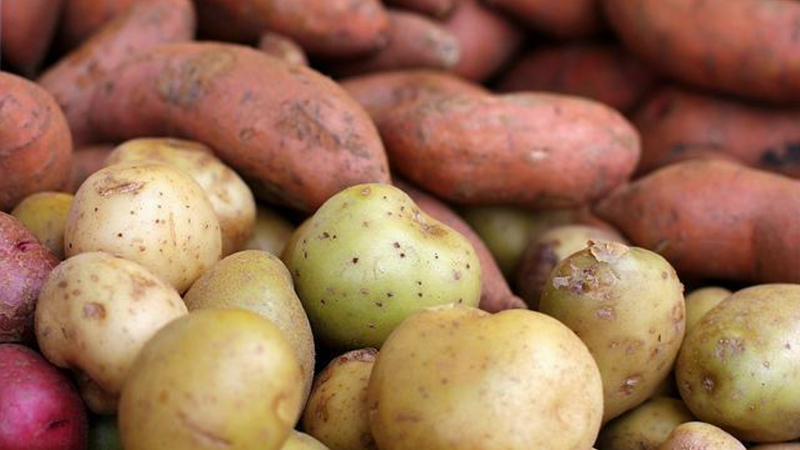Crops from the New World have exploded in popularity in the Old World and the Columbian Exchange has caused the end of many species.
Plants native to the New World, such as potatoes and maize, may thrive on soils unfit for Old World crops. China and India are the world's leading potato growers and consumers. More than half a billion people in the developing world eat cassava, which has more calories than any other plant on the planet. In China, sweet potatoes, another New World crop, are a staple food for the impoverished.
Potatoes became so popular in Ireland that the typical Irish laborer ate 10 pounds of potatoes per day, and the Irish population nearly quadrupled between 1754 and 1845 by surviving only on potatoes. Moreover, a third of the island's inhabitants relied primarily on potatoes and when a potato disease called Potato Blight decimated potato harvests across Europe in the 1840s, it resulted in the Great Famine, which saw Ireland's population drop by almost 20%. A million people died as a result of the Irish Potato Famine, and another million fled from Ireland.
Following the Columbian Exchange, the world's population became more genetically and ethnically integrated, and fewer people went hungry. However, the diversity of species on Earth has significantly decreased, and growing crops where they do not belong has harmed the ecology. In the previous 400 years, man and "the plants and animals that man brings with them have caused the extinction of more kinds of living forms than the regular processes of evolution could kill out in a million". Christopher Columbus unified the world's ecological landscape, resulting in several irreversible changes.







